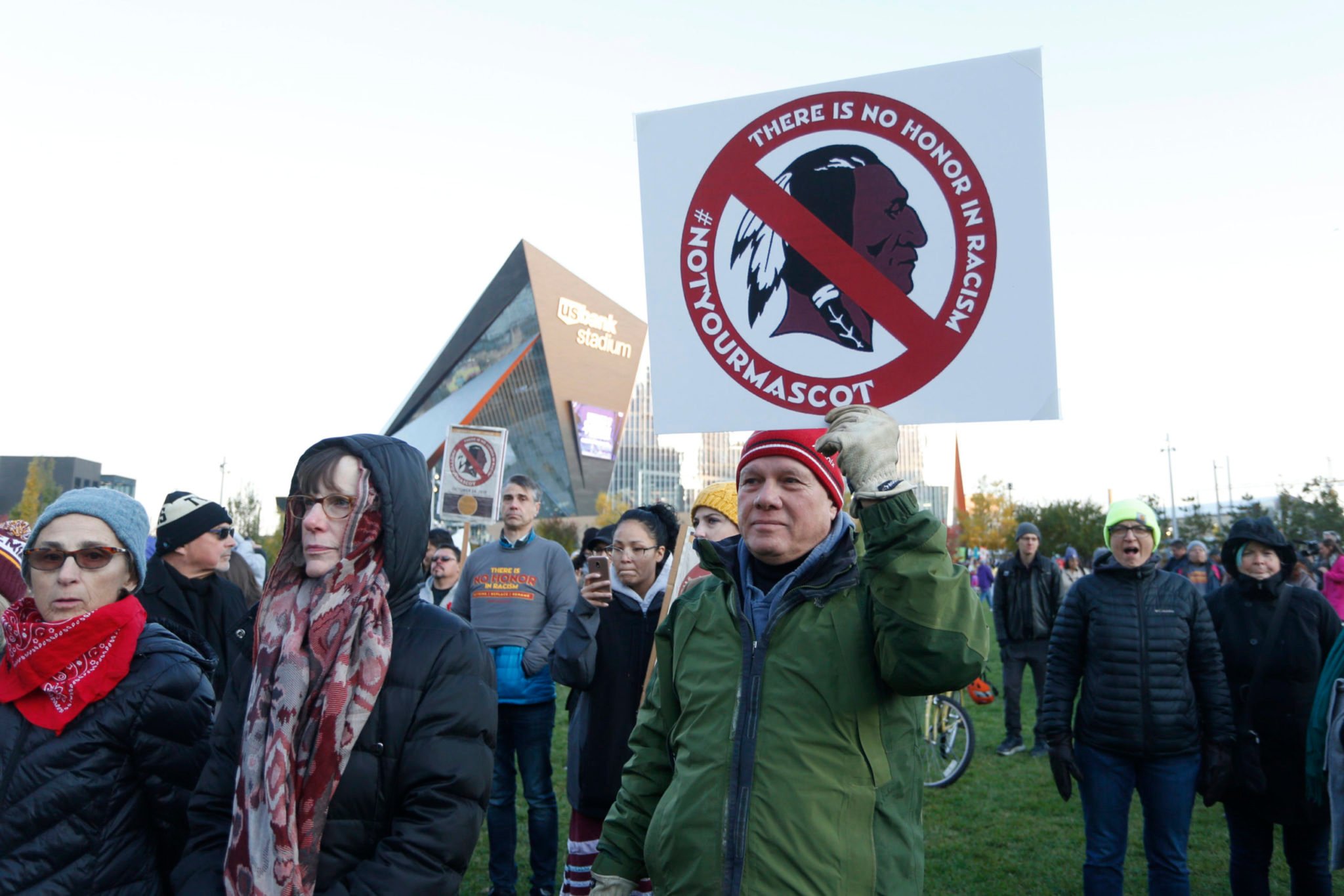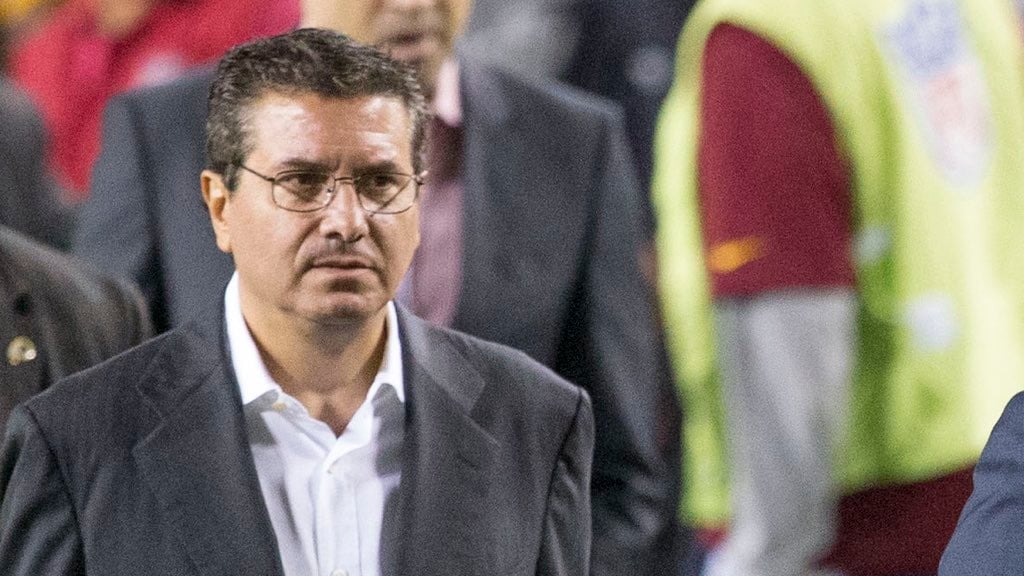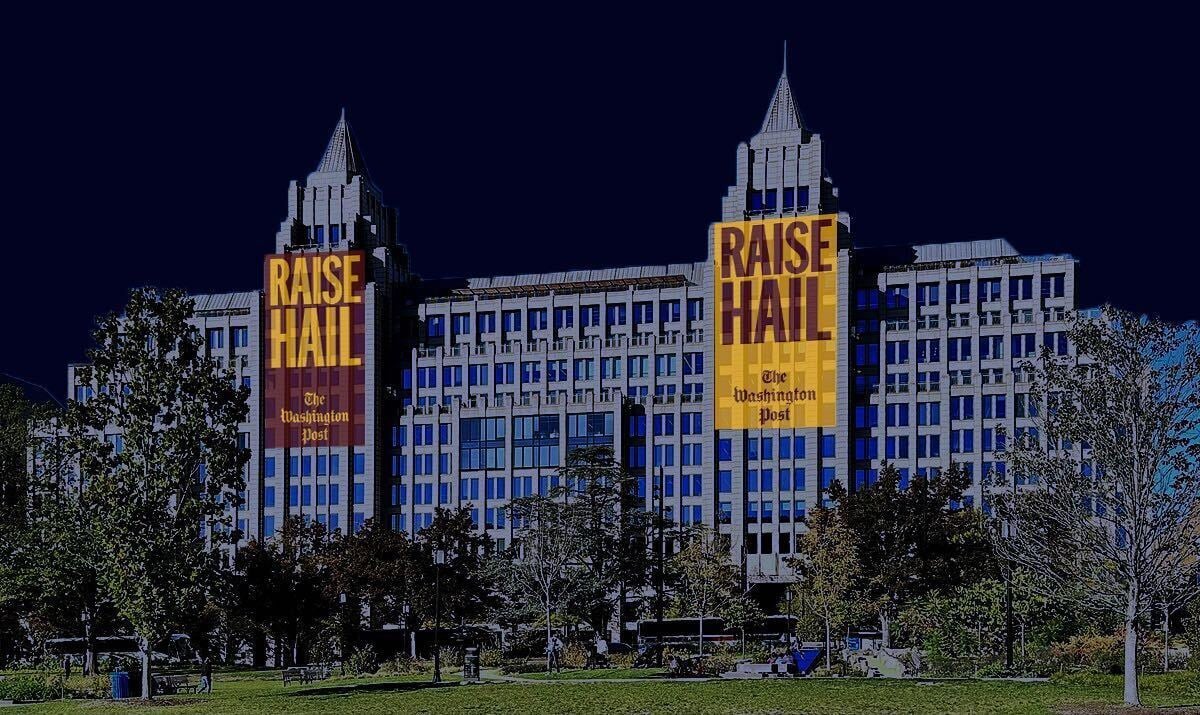In 2016, the Washington Post published a poll about whether Native Americans found the Washington Redskins’ name offensive. Ninety percent of respondents said they were not offended by the team’s name. The poll has since been used by Dan Snyder and other team owners as evidence that their Native American mascots are inoffensive.
But a new study from academics at the University of Michigan and UC Berkeley contradicts that data. In a scientific survey of more than 1,000 Native Americans, roughly half of the participants said they were offended by the Redskins’ name. Moreover, 65 percent said they were offended by sports fans performing a “tomahawk chop,” and 73 percent said they were offended by fans imitating Native American dances.
We sat down with study coauthor Stephanie Fryberg, a professor at the University of Michigan, to chat about why her study got such different results.
How did this study come to be?
It stems back to the 2016 Washington Post poll. It argued that 90 percent of Native people are not offended [by the Redskins name]. And then there was another poll that came out in 2019 that claimed to have the same result as the Washington Post, but their data was quite different. There are Native-driven polls that show very different results. And yet, for some reason, this Washington Post poll is seen as having killed the debate. And so when that second article came out, my team sat down and asked the question, “Can we do a study that would both be a check of the work they did, and be scientific as opposed to a public opinion poll? Can we create a poll that would really consider the literature, and see if we could account for more of the variation in Native people’s experiences?” There are fatal flaws with the Washington Post poll.
And what are those? Because maybe public opinion has changed in the four years since the Post poll was conducted, but the discrepancy between their results and yours still seems pretty drastic.
I mean, [the Post poll] would never be scientifically published. They called people, as part of a larger study, and they had these items [about mascots] in there. One of the things that we know in science is that the questions you ask before and after influence the response. For example, if I asked you a really serious question about people who are dying in your community, and then I say, “By the way, are you offended by Native mascots?” you see how you can really influence people. People have requested to know what the items were and what order they were in. The second issue is that they called people. There’s very good data that shows when you do a call versus online, it changes peoples’ responses. When you call, people are more likely to give positive and socially desirable answers. And then they only allowed as answers to their question, “are you offended, are you indifferent, are you not bothered?” Native people telling a person they don’t know that they’re “offended,” that’s a strong emotion.
It seems like there would be shades of gray in there.
For sure. We took the same question [the Post asked], but we gave participants a one-to-seven scale. So you can answer, “I’m somewhat offended, I’m moderately offended, I’m extremely offended.” We also didn’t call them, we allowed them to do it online. There’s no stranger or other person you’re trying to account for, [worrying] what they’re going to think about your response. Many Native scholars have reached out and asked for the [Post’s] data. Or, better yet, show us what your questionnaire was, what are all of the items that you asked? They won’t share it. None of that.
[When asked to comment on this study, the Post shared a summary of the data it collected and an FAQ about the poll in addition to the following statement:
“Our 2016 poll on views of the Redskins’ team name is the most recent survey based on a random national sample of Native American adults. We were transparent about our survey’s methodology, including how questions were worded and what steps were taken to ensure the sample was representative of Native Americans’ opinions.”]
We’re going to make the data [of our study] public so anyone can go in and look. It’s called open science, it’s about transparency. We also asked about peoples’ identities. One of the things that public opinion polls do is they homogenize groups, they oversimplify issues. We have twice as many Native people in our sample, and then we ask really important questions about identity centrality. Are you a member of a federally recognized tribe? How important is being Native to your well-being? What are everyday things you do that are Native? So we can both look at people who are highly identified with being Native, for whom seeing a stereotype is going to hurt them, because being Native is important to who they are. Then we can look at people who are low in all of these markers. We found that, even in that group, there’s no way for us to cut up our data and get 90 percent [who are not offended]. No way. When we look at the high and low of people who do a lot of Native cultural practices, you see 67 percent in the high quartile are offended both by the Redskins’ discriminatory and racist mascot. On the low end of that scale, we’re still talking about 40 percent of people who are offended.
What do you hope to accomplish with this new data?
I think there’s a way in which we can reach out to fans to help them to understand that they are contributing to the dehumanization of Native people. Ninety percent of Native women experience physical or sexual violence in their lifetime, 80 percent of them at the hands of non-Natives. Did you know that in January, 453 Native women and girls were murdered or missing? 453. In January. When you dehumanize a group, it allows all these terrible things. Everything that you’re seeing is about protecting white people and letting them play Indian and feel good, but it’s literally hurting our people.
I wonder if people who are ardent supporters of the Redskins’ name see “being offended” as a serious issue. How do you change those minds?
I think there’s evidence that people are starting to be aware [that it is serious]. For the last four years, tribal leaders have been standing up and saying “we are offended,” and they would simply say, “no, sit down, 9 out of 10 Native people are not offended,” based on a bad survey. Part of the reason I study this is because I’m really interested in how cultural representations shape identity and development. Did you know that the Indian mascot affects self esteem more than negative stereotypes? Like, if we present Native kids with negative stereotypes about alcoholism, suicide rates, and dropout rates, that lowers self-esteem significantly. The mascot lowers self esteem significantly more than those other stereotypes. This is a piece that people don’t get. How do we say to a Washington fan, “Look I get that you enjoy this, your playing Indian, but your playing Indian is leading to our children dying.” And how important is it? I went to Stanford, [our mascot was] the tree, we loved the tree! If you can get behind a tree, you can get behind anything. Stanford got rid of their Indian, and they still have a tremendous endowment, people donate money, hundreds of thousands of people support their sports.
What has the Post said to you about all this?
The head of their polling department has reached out to us three times asking for us to break the data down differently, and we keep sending him what he’s asking for, because even though they wouldn’t give their data to us, we are going to be totally transparent.
And you’re getting the same results regardless of how you slice it?
Yeah. And what’s interesting is [the Post has] been silent, there’s no response, because I don’t think they have a good response.
Washingtonian asked the Post whether it planned to report on this study; a spokesperson said the paper had “nothing additional to share.” This interview has been edited and condensed.


















